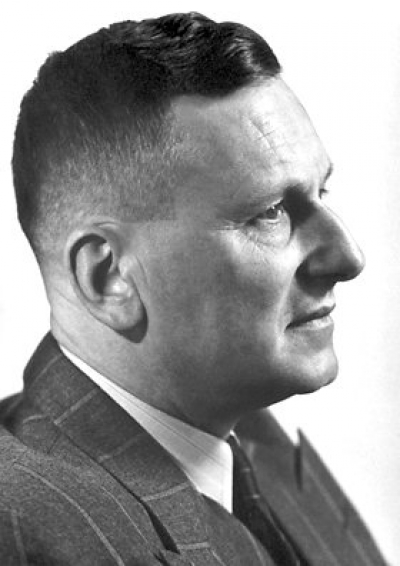The Nobel Prize in Physiology or Medicine is awarded yearly by the Nobel Assembly at the Karolinska Institute for outstanding discoveries in physiology or medicine. The Nobel Prize is not a single prize, but five separate prizes that, according to Alfred Nobel's 1895 will, are awarded "to those who, during the preceding year, have conferred the greatest benefit to humankind". Nobel Prizes are awarded in the fields of Physics, Chemistry, Physiology or Medicine, Literature, and Peace.
The Nobel Prize is presented annually on the anniversary of Alfred Nobel's death, 10 December. As of 2022, 114 Nobel Prizes in Physiology or Medicine have been awarded to 226 laureates, 214 men and 12 women. The first one was awarded in 1901 to the German physiologist, Emil von Behring, for his work on serum therapy and the development of a vaccine against diphtheria. The first woman to receive the Nobel Prize in Physiology or Medicine, Gerty Cori, received it in 1947 for her role in elucidating the metabolism of glucose, important in many aspects of medicine, including treatment of diabetes. The most recent Nobel prize was announced by the Karolinska Institute on 3 October 2022, and has been awarded to Swedish Svante Pbo, for the discoveries concerning the genomes of extinct hominins and human evolution.The prize consists of a medal along with a diploma and a certificate for the monetary award. The front side of the medal displays the same profile of Alfred Nobel depicted on the medals for Physics, Chemistry, and Literature; the reverse side is unique to this medal.
Some awards have been controversial. This includes one to Antnio Egas Moniz in 1949 for the prefrontal lobotomy, bestowed despite protests from the medical establishment. Other controversies resulted from disagreements over who was included in the award. The 1952 prize to Selman Waksman was litigated in court, and half the patent rights awarded to his co-discoverer Albert Schatz who was not recognised by the prize. Nobel prizes cannot be awarded posthumously. Also, no more than three recipients can receive a Nobel Prize in Physiology or Medicine, a limitation that is sometimes discussed as an increasing trend is for larger teams to conduct important scientific projects.
Paul Hermann Müller, also known as Pauly Mueller (12 January 1899 – 13 October 1965), was a Swiss chemist who received the 1948 Nobel prize in Physiology or Medicine for his 1939 discovery of insecticidal qualities and use of DDT in the control of vector diseases such as malaria and yellow fever.

1948Oct, 28
Swiss chemist Paul Müller is awarded the Nobel Prize in Physiology or Medicine for his discovery of the insecticidal properties of DDT.
Choose Another Date
Events on 1948
- 3Apr
Marshall Plan
United States President Harry S. Truman signs the Marshall Plan, authorizing $5 billion in aid for 16 countries. - 14May
1948 Arab-Israeli War
Israel is declared to be an independent state and a provisional government is established. Immediately after the declaration, Israel is attacked by the neighboring Arab states, triggering the 1948 Arab-Israeli War. - 15May
1948 Arab-Israeli War
Following the expiration of The British Mandate for Palestine, the Kingdom of Egypt, Transjordan, Lebanon, Syria, Iraq and Saudi Arabia invade Israel thus starting the 1948 Arab-Israeli War. - 16Jul
1948 Arab-Israeli War
Following token resistance, the city of Nazareth, revered by Christians as the hometown of Jesus, capitulates to Israeli troops during Operation Dekel in the 1948 Arab-Israeli War. - 3Aug
Alger Hiss
Whittaker Chambers accuses Alger Hiss of being a communist and a spy for the Soviet Union.

 English
English  español
español  français
français  português
português  русский
русский  العربية
العربية  简体中文
简体中文 